Thomas Hardy

Thomas Hardy
by J. B. Bullen*1 [gleanings:literary biographies,universality-of-themes-in-fiction]
The tragedies of Thomas Hardy‘s novels are indeed dark, but that darkness is a foil to the rightness and optimism of life. As Thomas Hardy recognised, pleasure, joy and satisfaction are emotions understood only in terms of their opposite, and much of the energy in his writing comes from the stress between these contrasts. Thomas Hardy is a writer who celebrates the pleasures of life and of love but he also mourns their passing. To see only the gloom in Thomas Hardy is to miss the sense of pleasure and to overlook the enormous positive vitality of his work.
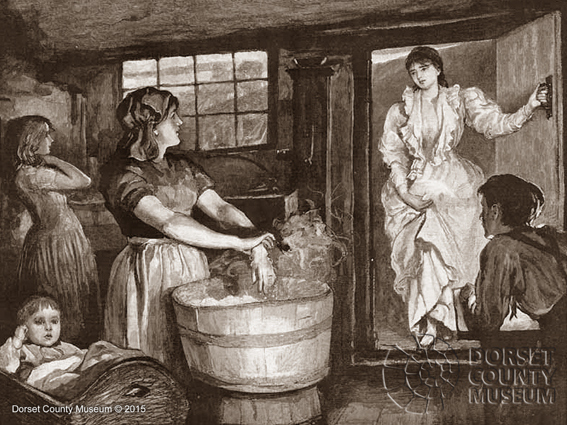
“There stood her mother amid the group of children, as Tess had left her, hanging over the Monday washing-tub, which had now, as always, lingered on to the end of the week. Out of that tub had come the day before—Tess felt it with a dreadful sting of remorse—the very white frock upon her back which she had so carelessly greened about the skirt on the damping grass—which had been wrung up and ironed by her mother’s own hands.”
A Herkomer illustration for the Graphic serialization of Tess of the d’Urbervilles, December 1891.
Thomas Hardy‘s early readers thought that his literary world [Wessex Novels] was exclusively rustic and at first classed as a provincial writer. It soon became clear, however, that his characters were facing issues that were not confined to realm of hedges and farmlands. Problems raised by female emancipation in a male world were not exclusively rural; nor were the inroads made by industrial processes into time-honoured methods of production. The double standards of sexual morality were as much an urban as a rural conundrum and so were religious doubts and family strife.
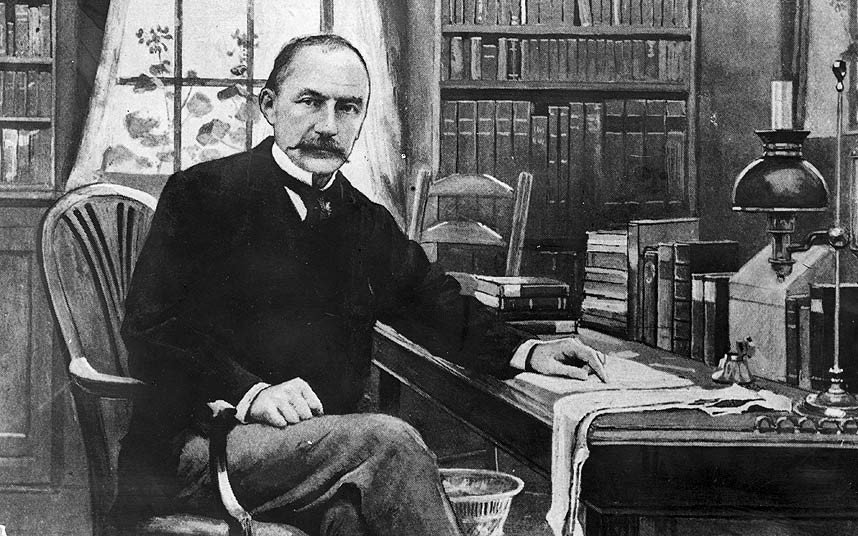
Thomas Hardy explored tragic characters struggling against their passions & social circumstances.
Though Thomas Hardy‘s world and the world of his contemporaries seem very different from ours, when we examine it more closely we can see that problems faced by Victorians bear a strange resemblance to our own.
For example, nineteenth-century science questioned man’s relationship with nature while in the twenty-first century global warming prompts questions about our responsibility for the health of the natural world. In the nineteenth century, industrial process fundamentally altered the shape of Victorian society no less than revolution in physics and technology has changed ours. Then there were questions about gender and sexuality.
Though Victorian codes of sexual behaviour were strangely unlike our own, it takes very little imagination to see that the underlying issues between men and women remain the same.
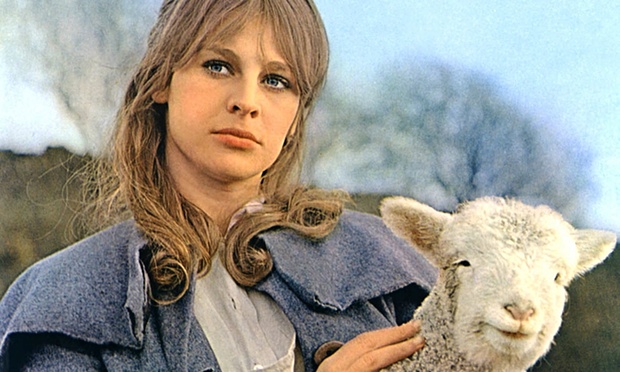
Julie Christie starring in the 1967 movie adaptation of Thomas Hardy’s ‘Far from the Madding Crowd’ directed by John Schlesinger
But Hardy’s novels are not simply about ‘issues‘. Thomas Hardy once pointed out that a novel is an ‘impression’ not an ‘argument’, by which he meant his principal focus was not the abstract realm of ideas and concepts. The intellectual challenges of his day were important to him, but his main interest lay in people and their relationship to each other & with their environment. ThoughThomas Hardy was not a realist writer, the ‘impression‘ in his novels arose from his ability to create believable characters in believable settings.
The Wessex world of Thomas Hardy‘s creation is a visionary place charged with stories, legends and myths, enhanced with light, colour,sounds, texture and smells and populated by psychologically and credible characters.
At one point he categorized his most popular works as ‘Novels of Character and Environment‘ in which the argument or the abstract issues emerged from the amalgam of these two elements. Throughout Thomas Hardy ‘s writing, character, environment and argument are inextricably connected.
The environment is not just a backdrop for the characters. Instead, the villages, buildings, woods and fields play an active part in the plot. Sometimes they set the mood for the drama that unfolds within or around them, sometimes they reflect the temperament, personality or dispositions of one figure oe another, but there is always a link between dispositions of Thomas Hardy ‘s characters, the scenes in which he places those characters and the underlying issues with which the novels deal.
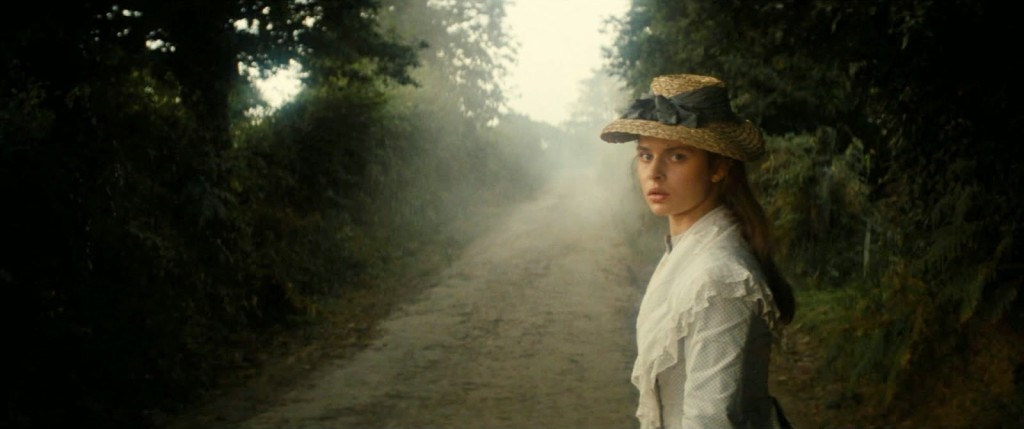
Nastassja Kinsky starring in the 1979 movie adaptation of Thomas Hardy’s ‘Tess of the d’Urbervilles’ directed by Roman Polanski
*1 Above is an excerpt from the book titled “Thomas Hardy, The World of His Novels” written by J. B. Bullen. ISBN 978-0-7112-3275-4. Copyright (c) Frances Lincoln Limited 2013, Text copyright (c) J. B. Bullen. Reproduced herein with the kind courtesy of the copyright holders.
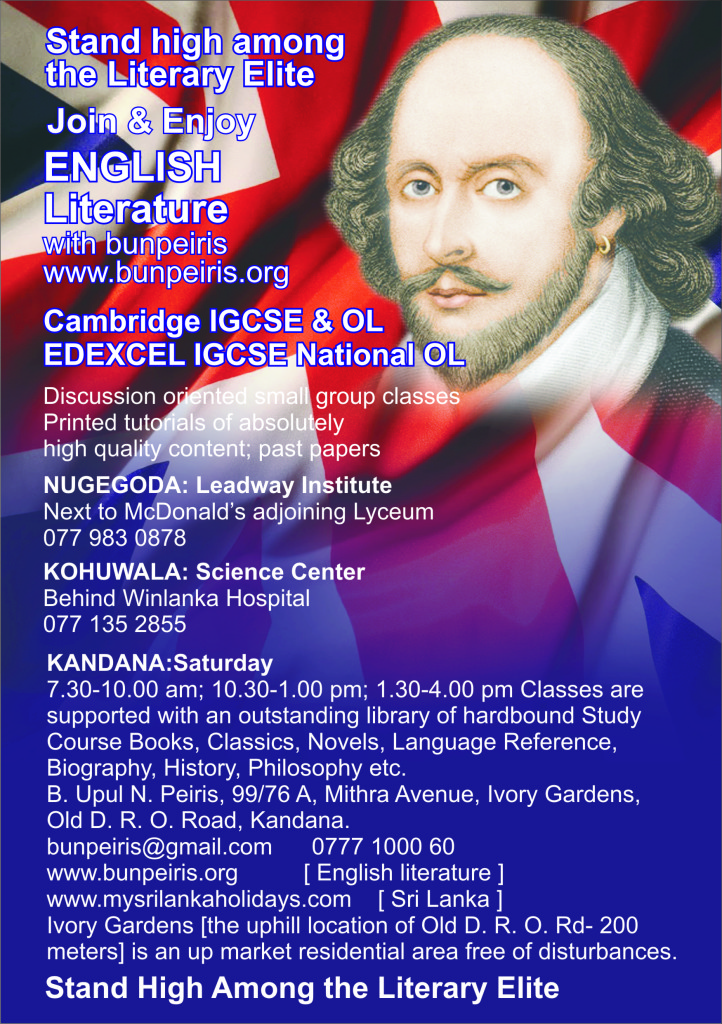
Tuition in English Literature Cambridge, EDEXCEL & National at Kandana by bunpeiris
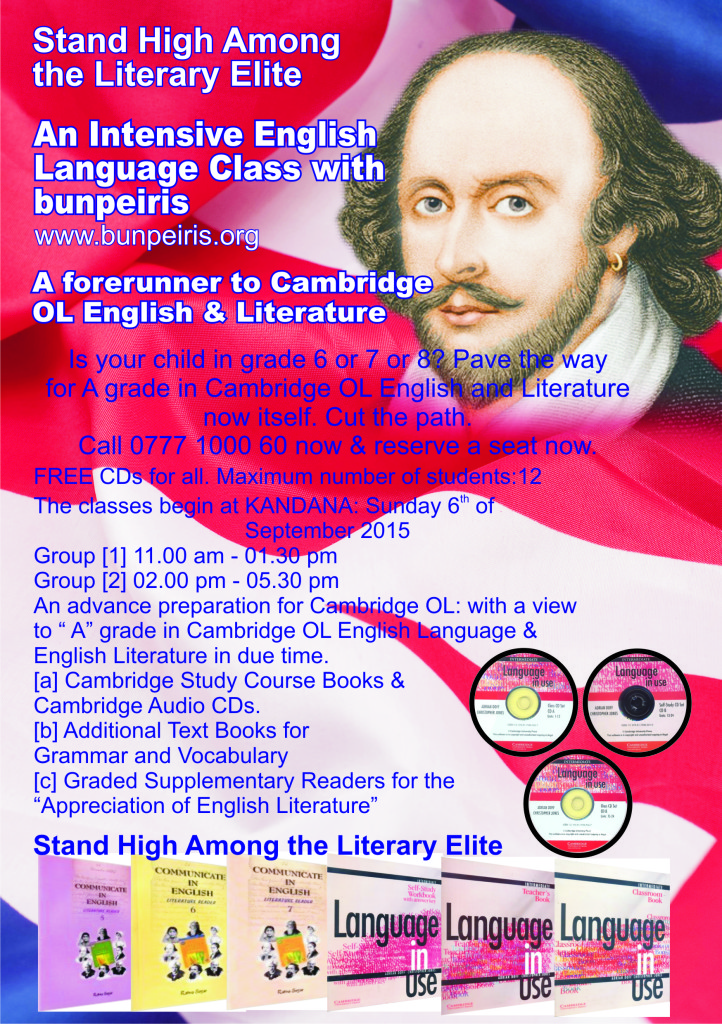
ENGLISH LANGUAGE TUITION KANDANA bunpeiris
